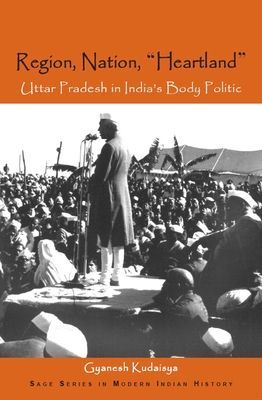
Region, Nation, "Heartland" Uttar Pradesh in India's Body Politic
This book interrogates Uttar Pradesh’s identity as India’s “heartland” and unravels the historical processes that have shaped this region. In looking at this constructed identity of the state it argues that UP’s existence as a “region” cannot be taken uncritically as a given, considering the complex and divergent traditions that have been constituent of the state. It makes the case that UP has been imagined in multiple ways and explores five such distinct, though overlapping, constructions through its modern history: UP as a “colonial heartland”, as a “nationalist heartland”, as a “Hindu heartland”, as a “Muslim heartland”, and finally as a “postcolonial heartland”. The book closely examines UP’s transformation from a colonial to a postcolonial society, looking at issues of identities, mobilization and governance. With its size, location and demography, UP has occupied a distinct position within India’s body politic. In the last two decades, the state has seen dramatic political change, marked by fragmentation along lines of religion, region, class and caste. Region, Nation, “Heartland” offers insights into factors that lie behind this social and political churning, which promises to transform not just UP, but India itself. The book offers a fresh perspective into the dynamics of how “regions” have contributed to the projects of state and nation-building in South Asia.